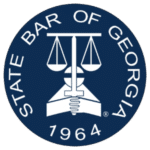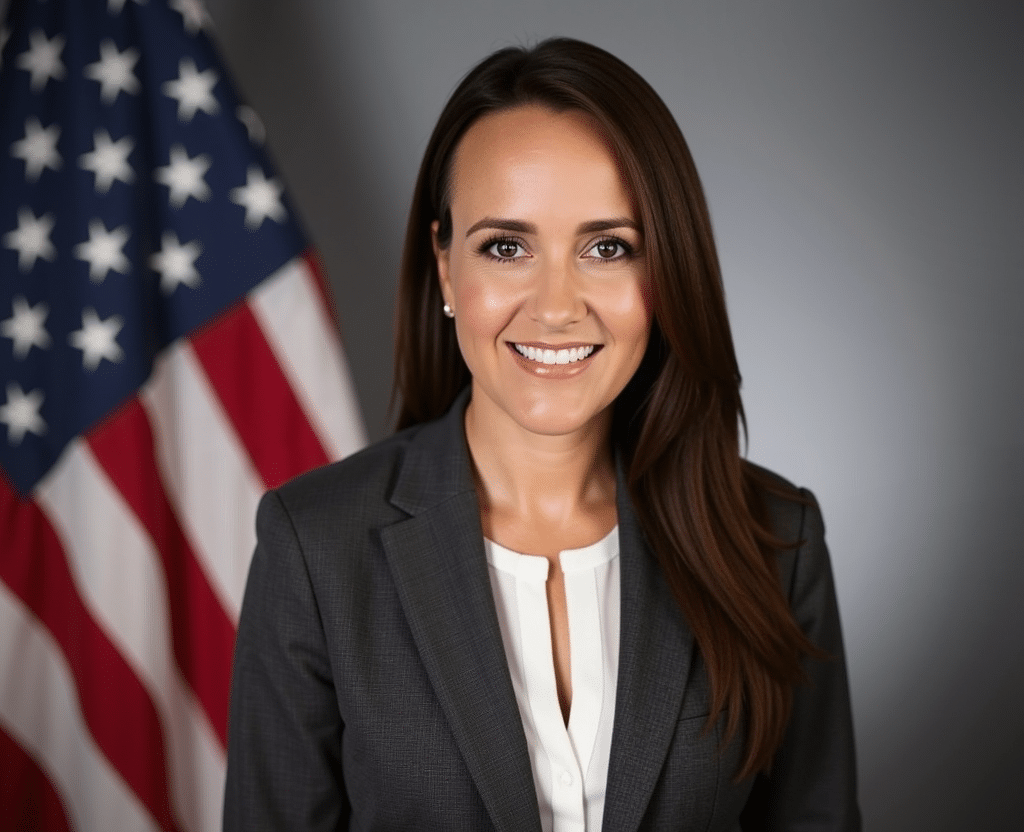Table Content
Article 120b of the Uniform Code of Military Justice establishes criminal liability for sexual offenses committed against a child. The statute applies to service members subject to the UCMJ and defines the term “child” as any person who has not attained the age of 16, unless otherwise specified within the article. The provision covers a range of prohibited sexual acts and sexual contact involving minors.
Article 120b prohibits engaging in sexual acts or sexual contact with a child, as well as causing a child to engage in such conduct. It also criminalizes lewd acts, which include intentionally exposing one’s genitalia, causing a child to expose genitalia, or communicating indecent language to a child for sexual purposes. The statute covers both physical acts and certain non-physical conduct when performed with sexual intent involving a minor.
The article applies to any person subject to the UCMJ, typically active-duty service members, certain reservists, and others under military jurisdiction. Civilians are generally not chargeable under Article 120b unless they fall within a statutorily defined category of UCMJ coverage. Liability is determined at the time of the alleged offense.
The statute typically requires that the accused committed the conduct knowingly or intentionally. For sexual acts and sexual contact, the government must prove the accused engaged in the act with awareness of the conduct itself, though not necessarily the child’s exact age. Certain lewd acts require proof of sexual intent or intent to arouse or gratify sexual desire.
Attempts to commit offenses under Article 120b are punishable under Article 80, provided the government proves a substantial step toward the commission of the offense. Conspiracy under Article 81 may apply when two or more persons agree to commit a sexual offense against a child and an overt act occurs. Accomplice liability under Article 77 extends to individuals who aid, abet, or encourage the commission of an Article 120b offense.
To secure a conviction under Article 120b, the government must prove each element of the offense beyond a reasonable doubt. These elements define the specific conduct prohibited and the circumstances under which it becomes criminal under the Uniform Code of Military Justice.
The mens rea for Article 120b requires that the accused intentionally engaged in the sexual act. However, age is a strict_liability component; the government need not prove that the accused knew the child’s age or that any mistake about age was reasonable.
The actus reus consists of performing a “sexual act,” which is statutorily defined to include penetration, however slight, of the vulva, anus, or mouth by the penis; penetration of the vulva or anus by any object with intent to abuse, humiliate, harass, or degrade; or intentional genital_to_genital contact. Proof of physical force or coercion is not required for this offense.
Critical statutory terms include “child,” defined as a person who has not attained the age of 16, and “sexual act,” which must be established through evidence demonstrating the specific form of contact or penetration set out in the statute. These definitions guide the factfinder in determining whether the alleged conduct meets the legal threshold for the offense.
Punishment for Article 120b, Sexual Assault of a Child, depends on the date of the alleged offense. Offenses committed before December 27, 2023 use the traditional maximum_punishment model found in the Manual for Courts_Martial (MCM). Offenses on or after December 27, 2023 are sentenced under the new sentencing_parameters system implemented by the FY22 National Defense Authorization Act.
Under the pre_December 27, 2023 framework, Article 120b (sexual assault of a child) carried a fixed maximum punishment authorized by the MCM. The principal elements of that structure were:
For offenses occurring on or after December 27, 2023, Article 120b is sentenced under the new standardized sentencing_parameters system. Under the 2024 Manual for Courts_Martial, penetrative sexual offenses against a child fall within Sentencing Category 2.
Unlike the prior system, which relied on a single maximum confinement value for each offense, the new sentencing_parameters model assigns offenses to categories with defined confinement ranges. Within those ranges, the sentencing authority must impose a term of confinement that falls between the statutory minimum and maximum for the applicable category. Other punishments—such as punitive discharge, reduction, and forfeitures—remain available and function similarly to the prior system.








Charging decisions under Article 120b are driven primarily by the underlying fact pattern, the nature and clarity of the disclosures, and the evidentiary record developed during the investigation. Command discretion also plays a significant role, particularly in determining whether allegations proceed to preferral, whether related misconduct is bundled into a single case, and how broadly the charge sheet is framed.
Article 120b charges most often arise from disclosures made by the child to a parent, caregiver, teacher, or medical professional. In many cases, a third party reports behavioral changes or concerning statements that prompt initial inquiry. Allegations also emerge during domestic disturbances, family-custody disputes, or mandated-reporting triggers such as emergency-room visits. Situations involving digital communication—such as text messages or social media conversations between the accused and a minor—frequently surface when a parent discovers the interaction or when a minor shows messages to a trusted adult. In operational settings, allegations may originate from temporary living arrangements, on-base youth programs, or family support environments where service members interact with minors.
Cases typically begin with a mandatory report from a caregiver, teacher, medical provider, or command authority. Once notified, law-enforcement investigators—CID for the Army, NCIS for the Navy and Marine Corps, OSI for the Air Force and Space Force, or CGIS for the Coast Guard—assume responsibility for the investigation. A structured forensic interview of the child through a Child Advocacy Center is common. Investigators collect digital evidence, statements, and contextual information from witnesses. Command-directed inquiries generally focus on immediate safety considerations and administrative steps while deferring substantive fact-finding to law enforcement.
Prosecutors frequently employ alternative charging theories to capture varying interpretations of the evidence, resulting in overlapping specifications under Article 120b and related articles. Charge-stacking can occur when discrete acts are alleged within a single course of conduct or when digital and physical misconduct are charged separately. Charging patterns often reflect an effort to preserve prosecutorial flexibility as evidence develops, particularly in cases involving evolving child disclosures or extensive electronic records.
Prosecutions under UCMJ Article 120b often hinge on the government’s ability to prove specific statutory elements, assess the reliability of witness accounts, and navigate evidentiary and definitional questions. Litigation commonly focuses on how these components interact within the factual and procedural framework of a given case.
Element-based challenges typically arise when the parties dispute whether the government has established each required component of the offense. These disputes often involve:
Mens rea is frequently contested because Article 120b contains provisions that may require proof of knowledge, intent, or, in some instances, a lesser mental state. Common areas of dispute include:
Because these cases often depend heavily on personal accounts, credibility assessments can influence the fact-finding process. Disputes may arise regarding:
Evidentiary rulings frequently shape Article 120b litigation. Common issues include:
Statutory interpretation questions may arise when parties dispute the meaning of key terms or the scope of cross-referenced provisions. Areas of focus can include:
Overview of adult sexual assault provisions under Article 120
Rape of a child charges closely related to Article 120b offenses
Sexual abuse of a child as a companion offense under Article 120b
Indecent viewing and exposure that may co-occur with child sexual misconduct allegations
Child endangerment charges that are often connected to sexual misconduct involving minors
Collateral consequences are administrative, professional, or legal effects that may arise separately from the adjudged court_martial sentence. These consequences are typically imposed by military administrative processes, federal or state law, or outside institutions, and can persist after a service member has completed any judicially imposed punishment.
A conviction under UCMJ Article 120b may affect a service member’s continued military status. Administrative separation proceedings are common, and the characterization of service may range from Honorable to Other Than Honorable, depending on the circumstances. A conviction may also adversely affect promotion eligibility, career progression, and assignments requiring heightened trust or responsibility. Additionally, the ability to qualify for retirement, including receipt of retired pay and benefits, may be affected if separation occurs before sufficient service is completed. Future reenlistment or commissioning opportunities are typically restricted or barred following such a conviction.
Sexual assault convictions generally have significant implications for security clearances. Loss of eligibility for access to classified information may occur based on adjudicative guidelines concerning personal conduct and criminal behavior. This loss can limit military duties and may also affect post-service employment in industries that require or prefer applicants with an active or eligible clearance.
Depending on the offense elements and applicable jurisdictions, a conviction under Article 120b may trigger sex offender registration requirements. Registration obligations are governed by federal standards, such as the Sex Offender Registration and Notification Act, as well as individual state laws, which vary in scope and duration.
The underlying conduct may also expose an individual to federal or state criminal proceedings or potential civil claims, independent of military action, if jurisdictional requirements are met.
For non-citizens or naturalized service members, certain convictions may affect immigration status, admissibility, or future naturalization eligibility, depending on federal immigration law and the specific offense of conviction.
During investigations under UCMJ Article 120b, decisions made in the earliest stages often influence how facts are developed, interpreted, and later presented. Long before charges are preferred, investigators and command authorities form impressions that can shape the direction and scope of the case.
Military investigations commonly begin with rapid evidence gathering, including interviews, digital forensics, and document collection. Early legal involvement helps ensure that statements are accurately recorded, that digital evidence is properly preserved, and that investigative actions are reviewed for compliance with procedural requirements. Guidance at this stage can prevent misunderstandings about context, timelines, or access to personal devices.
Service members are often asked to participate in command or law_enforcement interviews before they fully understand the allegations or their rights. Early statements made without legal context may be incomplete or imprecise and can later be interpreted as inconsistent. Legal representation, whether through appointed counsel or civilian military defense lawyers, helps ensure that interviews proceed only after the service member understands the scope of questioning and potential implications.
Commands may initiate administrative inquiries or command-directed investigations that run parallel to criminal investigative processes. Decisions made during these inquiries—such as written responses or participation in interviews—can influence command perceptions and may be referenced in later proceedings.
Choices made early in an investigation, including consenting to searches, providing statements, or submitting documentation, can have lasting effects throughout court-martial litigation or subsequent administrative actions. These early decisions may shape evidentiary rulings, credibility assessments, and the overall trajectory of the case.
Gonzalez & Waddington is a civilian military defense law firm that focuses on representing service members facing allegations under the Uniform Code of Military Justice. The firm handles serious and complex military criminal cases across all branches, providing informed guidance on the procedures, rights, and challenges involved in the military justice system.
If you or a loved one is facing allegations under UCMJ Article 120b, Gonzalez & Waddington is available to discuss the situation and explain the defense options that may be available. Contact the firm to request a confidential consultation and learn more about how an experienced civilian military defense attorney can assist you.
Q: What does UCMJ Article 120b: Sexual Assault of a Child cover?
A: Article 120b prohibits sexual acts and sexual contact with a child, defined as someone under the age of 16. The article includes offenses such as sexual assault, sexual abuse, and certain lewd acts involving minors. It applies regardless of consent, as minors cannot legally consent under military law. The statute covers a wide range of conduct and includes provisions for attempts, as well as involvement through coercion, manipulation, or exploitation.
Q: What is the maximum punishment for UCMJ Article 120b: Sexual Assault of a Child?
A: Maximum punishment depends on the specific subsection charged, but it can include a dishonorable discharge, lengthy confinement, forfeiture of all pay and allowances, and sex-offender registration consequences. The Uniform Code of Military Justice allows for significant penalties based on the seriousness of the conduct and the age of the child involved. The precise maximum is determined by the statutory language and applicable provisions in the Manual for Courts-Martial.
Q: Can an allegation under this article lead to administrative separation even without a conviction?
A: Yes. Commanders have authority to initiate administrative separation proceedings based on substantiated concerns about misconduct, even when no court-martial conviction occurs. These actions rely on a lower standard of proof and may consider the available evidence, investigative findings, and overall service performance. Administrative outcomes can include separation with various characterization levels, depending on the circumstances and regulatory requirements.
Q: Do I need a civilian military defense lawyer for an investigation under this article?
A: Service members are entitled to military defense counsel at no cost, but some choose to hire a civilian attorney for additional representation. Whether to retain civilian counsel depends on individual priorities, the complexity of the case, and personal preference. A civilian attorney may offer additional time or resources, but the decision should be based on an understanding of rights, potential consequences, and the scope of the investigation.
Q: Can this be handled without a court-martial, such as through administrative action or nonjudicial punishment?
A: In some situations, commands may choose administrative measures or nonjudicial punishment instead of a court-martial, depending on the available evidence and circumstances. However, allegations involving serious sexual misconduct toward a minor are often reviewed for potential court-martial disposition. Commanders consider investigative findings, witness statements, and legal guidance when determining the most appropriate forum for addressing the alleged conduct.
Q: Which agencies typically investigate allegations under Article 120b?
A: Allegations of sexual offenses involving minors are generally investigated by military criminal investigative organizations such as CID, NCIS, or OSI. These agencies conduct interviews, collect digital and physical evidence, and coordinate with civilian authorities when necessary. Their role is to develop an objective record of the events, which is then provided to commanders and legal professionals for disposition decisions under the applicable UCMJ standards.
Q: What types of evidence are commonly involved in an Article 120b investigation?
A: Evidence may include witness interviews, digital communications, forensic analysis, physical evidence, and statements from the involved parties. Investigators may also seek expert evaluations when relevant. The evidence collected is evaluated collectively rather than based on a single factor. The goal is to develop a clear factual record that helps decision-makers determine whether the allegation is supported under the applicable legal standards.
To better understand the Articles of the UCMJ and how military law works in practice, you can review the UCMJ and related authorities here: UCMJ Articles and Military Justice Resources. For additional official guidance, visit the U.S. Navy Judge Advocate General’s Corps website at jag.navy.mil.

A renowned military criminal defense attorney and best-selling author, Michael Waddington defends clients worldwide in serious cases and trains lawyers in advanced cross-examination. He is frequently featured by major media outlets like CNN and 60 Minutes.

Alexandra González-Waddington is a top military and civilian defense attorney who has handled high-profile sexual assault, violent crime, and war-crimes cases globally. Her work is widely recognized by media outlets including 60 Minutes and ABC’s Nightline.